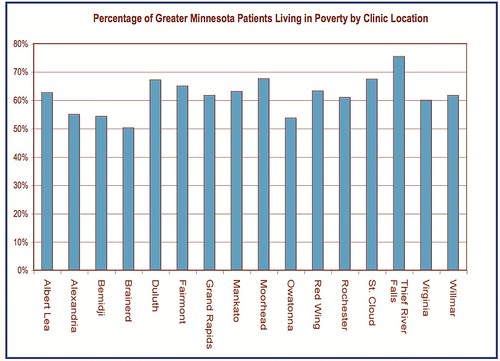Those rallying for choice at the MN capitol today are likely finding their voices fall on deaf ears. In the last election, Minnesota moved from having prochoice majorities to a minority, that will even struggle to uphold any gubernatorial vetoes. The saving grace is that we do have a strong prochoice governor who doesn't believe that its the governments job to legislate a woman's uterus.
For today's prochoice lobby day, I wanted to focus on a bill that should have passed every year, but usually doesn't make it out of committee (even when we had prochoice majorities). The comprehensive sexuality education bill provides schools in Minnesota with support and structure to ensure that all Minnesota kids understand their developing bodies, reproduction and decision making. Over 90% of Minnesota parents want schools to teach sex education that includes pregnancy prevention and abstinence. Yet there has been no move to ensure that Minnesota kids receive this education.
A survey of Minnesota teachers shows that new policies are needed to ensure that kids receive this critical information. Making sex ed a high school graduation requirement, ensuring districts and school boards develop policies for comprehensive sex education and finally passage of the state comprehensive sexuality education bill will help teachers share medically accurate information with their students.
The key is to ensure that our kids receive medically accurate information and the only way to do that is to develop a state standard for sexuality education as a part of health curriculum. Unfortunately most curriculum decisions are left to the local school districts where many lack the knowledge and support to provide this information. This decentralized approach to education has resulted in the United States having some of the highest rates of sexually transmitted infections and teen pregnancies in industrialized countries. Providing our kids with information and resources will reverse these trends. Comprehensive sexuality education will ensure they have all the information needed to make choices about their bodies and personal lives.
Rachel is currently a graduate student at the University of Minnesota working on a PhD in microbiology. She previously taught high school science for 'at-risk' kids in Arizona. She is a mother, a women's rights activist and advocate for science education.
Wednesday, February 23, 2011
Monday, February 7, 2011
Family Planning in Greater Minnesota
Entrenched in attempts to balance the budget, the MN legislature will likely cut from all funding areas. Last week, the MN senate passed cuts to child protection services and no one in the GOP was able to say why kids were in the first round for cuts or how this would effect them. Are these cuts viable or will they just cause more problems down the road? No one seems to know. We can bet that family planning services will likely receive the same blind ax by the GOP controlled legislature.
Family planning works and saves taxpayers money. Every dollar spent on family planning services saves Medicaid $4.02. Are there any other programs that have that kind of return on investment?

In greater Minnesota, access to family planning services is exceptionally challenging. 60% of Planned Parenthood patients live in greater Minnesota and 64% of those patients live in poverty. How will the GOP justify eliminating, in many cases, the only health care their constituents see in a year? Many clinics are located in communities that lack access to adequate primary care services. Will the MN GOP continue to fully fund ineffective 'crisis pregnancy centers' (that spread misinformation about birth control) but cut funding for family planning services that give medically accurate information? Reducing funding for family planning services will only increase the health care disparity between rural and urban women and cost Minnesota taxpayers more in the long run.
Family planning works and saves taxpayers money. Every dollar spent on family planning services saves Medicaid $4.02. Are there any other programs that have that kind of return on investment?

In greater Minnesota, access to family planning services is exceptionally challenging. 60% of Planned Parenthood patients live in greater Minnesota and 64% of those patients live in poverty. How will the GOP justify eliminating, in many cases, the only health care their constituents see in a year? Many clinics are located in communities that lack access to adequate primary care services. Will the MN GOP continue to fully fund ineffective 'crisis pregnancy centers' (that spread misinformation about birth control) but cut funding for family planning services that give medically accurate information? Reducing funding for family planning services will only increase the health care disparity between rural and urban women and cost Minnesota taxpayers more in the long run.
Subscribe to:
Posts (Atom)